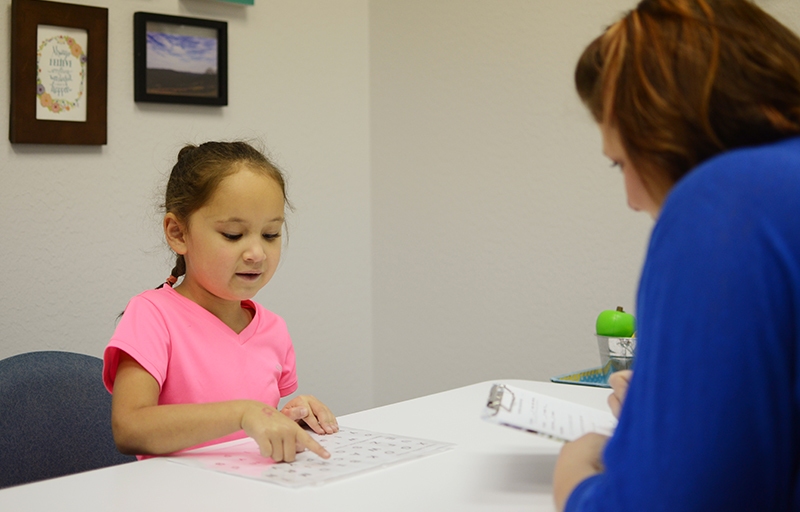Dyslexia Research

Luke Waites Center for Dyslexia and Learning Disorders
The Luke Waites Center for Dyslexia and Learning Disorders at Scottish Rite for Children is an internationally recognized leader in the identification and treatment of dyslexia and learning disorders. Under the direction of the Luke Waites Center Medical Director, Sheryl Frierson, M.D., and Research Scientist, Anna Middleton, Ph.D., the center conducts research on the causes and treatments of dyslexia and related learning disorders. In collaboration with universities and school districts across the country, we continually strive to better understand variations in the learning profiles of children with dyslexia, apply innovative and scientifically based approaches to treatment, and relate these to long-term outcomes. The team also investigates disorders of attention, mathematics and language, as well as socio-emotional factors related to learning disabilities.
The research program at the Luke Waites Center aims to maximize intervention efficacy, increase the accessibility of scientifically based reading intervention, improve student outcomes and facilitate the implementation of high-quality instruction within various educational environments, with a focus on public education settings.
Learn more about the Luke Waites Center for Dyslexia and Learning Disorders.
Current Studies
Dyslexia Laboratory School
Each year, the Luke Waites Center education staff enroll a new cohort of students with dyslexia to receive intervention within our own Dyslexia Laboratory School. All students receiving treatment at the Lab School receive instruction in the center’s published curriculum, Take Flight: A Comprehensive Curriculum for Students with Dyslexia (Avrit et al., 2006). Take Flight is a scientifically based dyslexia intervention program derived from Orton Gillingham principles of instruction (Avrit et al., 2006; Ring, Avrit, & Black, 2017). The curriculum scope was developed according to evidence-based best practices for teaching the important components of a comprehensive reading program (e.g., NICHD, 2000).
The data collected from patients seen in our lab allow the research team to document response to treatment within a controlled educational setting, and to evaluate factors that may impact treatment outcomes. These data also support staff in further developing and refining instructional materials and procedures that will be used in their Therapist Training program.
Intervention Efficacy Field Studies
The projects encompassed under this line of research seek to document response to treatment in samples of children with dyslexia who are receiving dyslexia intervention services in public school settings. Students’ performance is measured at various points throughout the intervention program to measure growth in reading and related language skills. Response to treatment will be compared across program types; specifically, the team will evaluate the comparative efficacy of Scottish Rite interventions to various other methods commonly employed in local public schools. Individual response to treatment and growth trajectories are also evaluated.
Differential Patterns of Treatment Response
Great strides have been made in the development of effective methods of instruction for children with dyslexia. However, individual response to treatment varies, and a proportion of students with dyslexia demonstrate persistent weaknesses despite otherwise effective instruction. Continued efforts are needed to support the prospective identification of poor responders, particularly in routine intervention settings. In collaboration with researchers in the Center for Dyslexia at Middle Tennessee State University, our dyslexia research team is partnering with local schools to collect data surrounding individual response to treatment for children receiving dyslexia interventions in their schools. The objective of this line of work is to identify early indicators of treatment response that may be used in further individualizing treatment for those at risk for reduced response to typical intervention methods.

